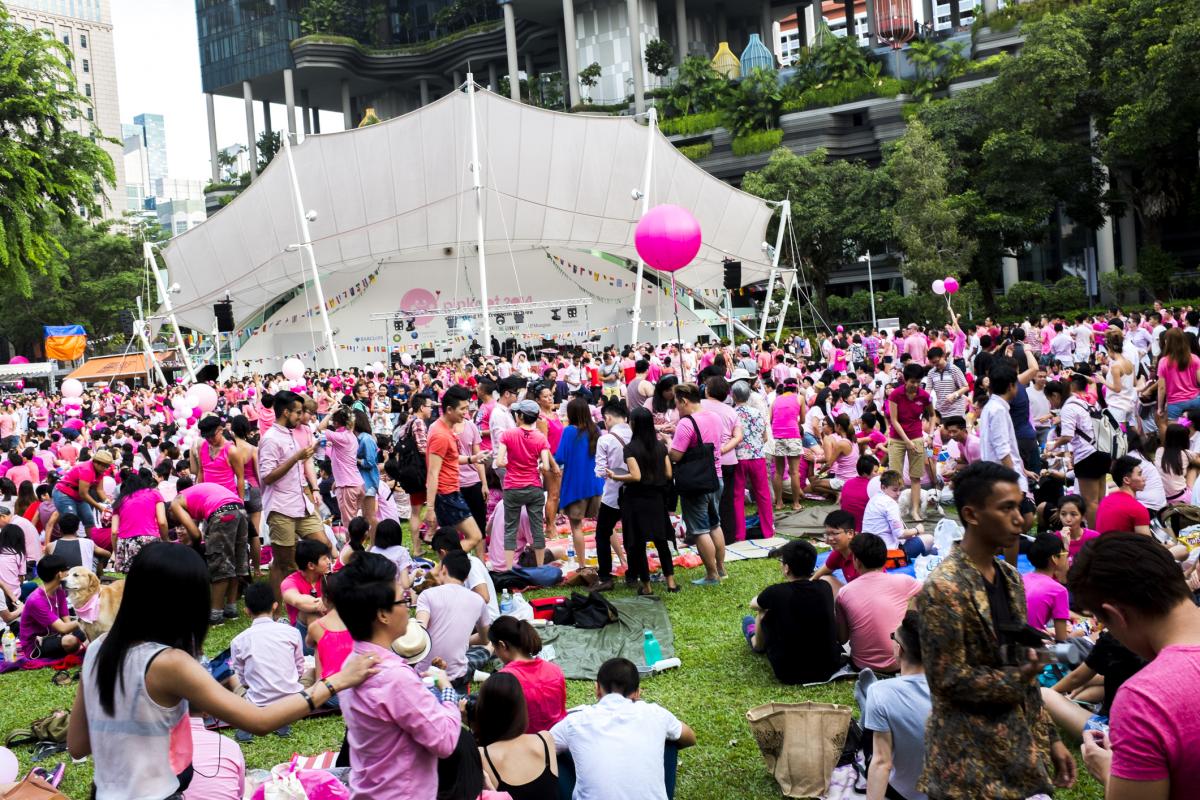Post-Pink Dot report: How do Singapore employers view LGBTQ workers?
- Kelvin Ong
- Topics: Employee Experience, Features, Singapore

Diversity and inclusion remain top priorities of organisations everywhere, but how inclusive and accepting are they of LGBTQ employees today?
A new, first-of-its-kind survey conducted by Achieve Group titled Singapore LGBT (Lesbian, Gay, Bizexual, and Transgender) Workforce Audit 2018, revealed that companies there have made some progress on the matter, though as with topics of this nature, it remains unclear as to how much of this stems from a genuine commitment to inclusivity.
The research, released on the eve of last week’s annual LGBTQ+ pride event PinkDot, polled close to 500 HR and corporate leaders in Singapore in an attempt to find out whether their businesses viewed LGBTQ-inclusivity as a priority, and whether such a stance has any perceived impact on productivity and bottom lines.
When respondents were asked about how important it was for them to be regarded as an Equal Opportunity Employer (EOE), 57% chose “very important”, with another 25% saying “fairly important”.
The overwhelming statistic in favour of workplace fairness indicates that companies are aware that being pro-equality is a crucial stance to align with if they want to be viewed as progressive in the eyes of jobseekers.
But this also brings up the question of whether it’s just about appearing fair and paying lip service, which the subsequent question puts to test. It asked employers whether they currently have an EOE policy in place.
There were more “no” than “yes” responses, indicating that while many view LGBTQ-inclusivity as necessary, most have not yet gone to the great length of formalising policies.
This shows that the general awareness and understanding of individual differences has not yet translated into definitive action.
But as one business leader present at the survey briefing explained, one reason for there being fewer companies having implemented LGBTQ-specific policies could be because some companies already have unofficial rules around dealing with these individuals, but do not consider them as policies.
Whether this is true or not, the results show that companies still have some work to do in terms of policy formulation, which is key to driving a culture of acceptance.
“The challenge is that this stance needs to be top-down, in order for it to be fully realised. The best way is to have a policy statement that is endorsed by the CEO. There is no point in HR writing it out and not having support,” said an HR Director.
The survey goes on to examine the perceived impact on business performance when individuals are open about their same-sex preferences.
Over half (51%) of respondents believe that this would improve teamwork and productivity, while 45% said it would have no impact.
While it appears that most believe that an LGBTQ person being authentic will bring about greater benefits to their businesses, one practitioner said that at the end of the day, a person’s “sexuality doesn’t even matter”. “We just want employees to do the job well,” she said.
The final point, on whether an LGBTQ employee’s openness about same-sex orientation would hurt their chances of career advancement and job promotion, yielded the most one-sided result, with 86% saying “no”.
This overwhelmingly positive result, though shocking to some, reiterated the previous sentiment that a person’s personal life has no bearing on their progress or how accepted they are at the workplace.
Overall, the survey certainly sheds more light on the topic of LGBTQ-inclusivity among Singapore companies. Ultimately, whether policies are there or not, it’s not who you are that counts, but what you can deliver that companies care most about.






